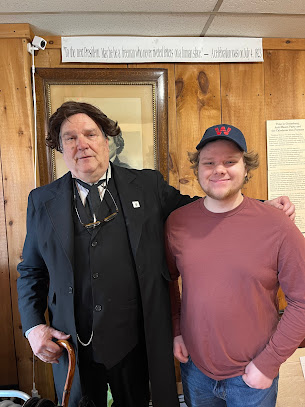Enslavers' arrogance aided in the defeat of slavery
June 2025
By Ross Hetrick
The death of slavery was helped along by the arrogance of the enslavers.
During the 1850s, the southern enslavers were definitely in the driver's seat as far as the national government was concerned. The decade started off with the Compromise of 1850 that included the Fugitive Slave Act which made it so easy to kidnap northern African-Americans that it sparked a reverse underground railroad. This was followed by the Kansas-Nebraska Act of 1854, which allowed the spread of slavery into new northern states if enslavers could get enough votes. This sparked a mini civil war in Kansas known as Bleeding Kansas. Then to top this all off, the Supreme Court issued the Dred Scott Decision in 1857 declared that Blacks, free or enslaved, were not US citizens. In reaction, President James Buchanan stopped issuing passports to free African-Americans.
Of course there was resistance to these measures. African-Americans formed self-protection groups to fight kidnappers, settlers in Kansas took up arms against slavers who wanted that territory to be a slave state, John Brown launched his raid on Harpers Ferry in 1859. And the Republican party was founded in 1854 on the principle of stopping the expansion of slavery to new states with the hope that it would die off in the states where it existed.
But the new party knew that there was no possibility of getting rid of slavery where it existed because it was protected by the Constitution and there was no chance of an amendment prohibiting it as long as the southern states stayed in the union.
But as strong as the enslavers were, they sabotaged their position by their own arrogance. They split the Democratic party between three candidates, all in favor of slavery, and Abraham Lincoln was able to win with only 40 percent of the vote. In fact, Lincoln had no southern votes because he was not allowed on the ballot in those states.
But instead of licking their wounds and waiting four years to try to regain power, the enslavers arrogantly seceded from the union. This allowed Lincoln to ban slavery in the Confederacy as part of his war powers and Congress to outlaw slavery all together in a legislature devoid of southern representation.
And even after the war started, many people, including Lincoln, were still trying to bring the union together without getting rid of slavery. But not Thaddeus Stevens. He saw as the chance to destroy the heinous institution.
"What an opportunity is presented to this republic to vindicate her consistency and become immortal," he said in January 1862. "The occasion is forced upon us, and the invitation presented to strike the chains from four million of human beings, and create them MEN; to extinguish slavery on this whole continent; to wipe out, so far as we are concerned, the most hateful and infernal blot that has ever disgraced the escutcheon of man; to write a page in history of the world whose brightness shall eclipse all the records of heroes and of sages."
The enslavers' arrogance was increased by massive self delusion. They would constantly proclaim that slaves liked being slaves. This fantasy was demolished by Stevens in a Congressional speech on June 10, 1850.
"Gentlemen on this floor and the Senate, have repeatedly, during this discussion, asserted that slavery was a moral, political and personal blessing; that the slave was free from care, contented, happy, fat and sleek," Stevens said. "Comparisons have been instituted between slaves and laboring freemen, much to the advantage of the condition of slavery. Instances are cited where the slave, after having tried freedom, had voluntarily returned to resume his yoke."
"Well, if this be so, let us give all a chance to enjoy this blessing. Let the slaves, who choose, go free; and the free, who choose, become slaves. If these gentlemen believe there is a word of truth in what they preach, the slaveholder need be under no apprehension that he will ever lack for bondsmen. Their slaves would remain and many freemen would seek admission in this happy condition. Let them be active in propagating their principles. We will not complain if they establish societies in the South for that purpose -- abolition societies to abolish freedom. Nor will we rob the mails to search for incendiary publications in favor of slavery, even if they contain seductive pictures of those implements of happiness -- handcuffs, iron yokes and cat-o-nine-tails."
Ross Hetrick is president of the Thaddeus Stevens Society, which is dedicated to promoting Stevens's important legacy. The Society operates the Thaddeus Stevens Museum at 46 Chambersburg St. in Gettysburg, PA. More information about the Great Commoner can be found at the society's website: https://www.thaddeusstevenssociety.com/






